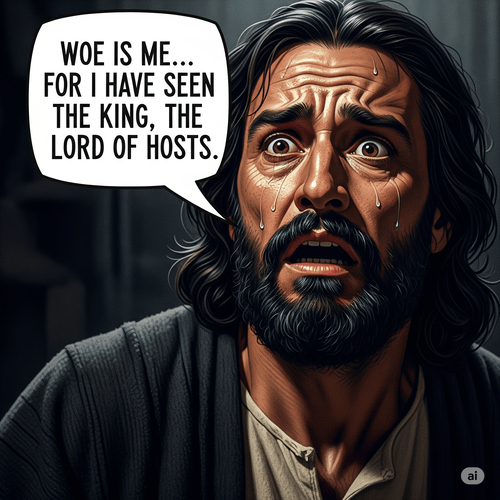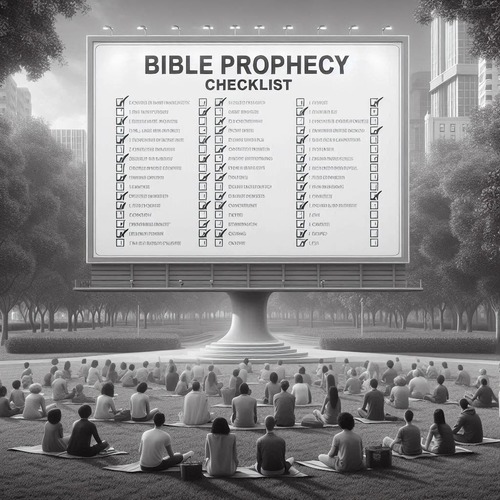Can You Be Christian But Reject the Trinity?
The question cuts to the heart of what it means to be a Christian. Is belief in the Trinity—the doctrine that God exists as three persons in one essence—merely an optional theological opinion, or is it fundamental to the Christian faith itself?
From a Reformed perspective, the answer is clear: you cannot reject the Trinity and remain within biblical Christianity. This isn’t theological gatekeeping—it’s about the very nature of the God we worship and the gospel that saves us.
SALVATION IS THE TRINITY’S WORK
Here’s the fundamental issue: to be a Christian, one must be saved. And salvation, from beginning to end, is the work of the Trinity. You cannot separate being Christian from the Trinitarian work of redemption.
Scripture reveals a beautiful divine choreography in salvation. The Father elects us “before the foundation of the world” (Ephesians 1:4), choosing us in love according to His sovereign will. The Son accomplishes our redemption, bearing our sins and securing our righteousness through His perfect life, death, and resurrection. The Holy Spirit applies this salvation, regenerating our hearts, creating faith within us, and progressively sanctifying us throughout our Christian lives.
Paul captures this Trinitarian salvation perfectly: “But when the goodness and loving kindness of God our Saviour appeared, he saved us, not because of works done by us in righteousness, but according to his own mercy, by the washing of regeneration and renewal of the Holy Spirit, whom he poured out on us richly through Jesus Christ our Saviour” (Titus 3:4-6). Notice how all three persons are essential to our salvation.
This means that to reject the Trinity is to reject the very mechanism of salvation itself. You cannot be saved by a process you deny exists. If the Father didn’t really elect, if the Son isn’t truly God, if the Spirit is merely an influence—then the salvation Scripture describes simply isn’t available.
THE TRINITY ISN’T A HUMAN INVENTION
Critics often dismiss the Trinity as a later philosophical addition to simple biblical faith. But this misses what Scripture actually teaches. The doctrine didn’t emerge from Greek philosophy—it arose from wrestling with what the Bible reveals about God.
Consider the evidence. In Genesis, God says, “Let us make man in our image”—suggesting plurality within the Godhead from the very beginning. Isaiah 48:16 presents the Lord GOD, His Spirit, and a mysterious speaker being sent. The New Testament makes this even clearer. Jesus commands baptism “in the name of the Father and of the Son and of the Holy Spirit” (Matthew 28:19), and Paul closes 2 Corinthians with a benediction invoking all three persons.
Most striking is John’s Gospel. “In the beginning was the Word, and the Word was with God, and the Word was God” (John 1:1). How can the Word be both “with God” and “God” unless there’s distinction within unity? Jesus himself claims, “I and the Father are one” (John 10:30), yet prays to the Father and promises to send “another Helper” (John 14:16).
The early church didn’t invent the Trinity—they discovered it in Scripture and gave it a name.
CAN YOU BE CHRISTIAN BUT REJECT THE TRINITY? WHY THE TRINITY MATTERS
Some argue, “Why does this matter? Can’t we just focus on Jesus?” But the Trinity isn’t abstract theology—it’s the foundation of our salvation.
Think about what salvation requires. Our sin creates an infinite debt against an infinite God. Only God himself can bear infinite wrath and provide infinite satisfaction. If Jesus were merely a created being, as some claim, his sacrifice would be finite—unable to atone for infinite guilt. The cross only works because the one hanging there is fully God.
But Jesus is also fully human, able to represent us as our substitute. The God-man mediates between heaven and earth because He belongs to both realms. And the Holy Spirit applies this salvation to our hearts, making us alive to God.
Remove the Trinity, and the gospel collapses. You’re left with either a finite saviour who cannot save, or a divine charade where God merely appeared human. Neither offers genuine redemption.
THE CHURCH’S CONSISTENT WITNESS
Throughout history, whenever the Trinity has been challenged, the church has recognised the threat to the gospel itself. The Council of Nicaea (325 AD) didn’t create new doctrine—it defended Bible truth against those who denied Christ’s full deity. The reformers wrote the Trinity into their confessions not as speculation, but as biblical bedrock.
The Westminster Confession states it plainly: “In the unity of the Godhead there be three Persons of one substance, power, and eternity.” This wasn’t innovative theology—it was a summary of what Scripture teaches.
THE HEART OF THE MATTER
Can you be Christian but reject the Trinity? This question ultimately reveals our authority. If Scripture teaches the Trinity—and it does—that settles the matter for those who submit to biblical authority. We don’t get to pick and choose which divine attributes we find palatable.
Jesus claimed equality with the Father, accepted worship, and forgave sins—all prerogatives of deity alone. He also distinguished himself from the Father and promised the Spirit as “another Helper.” These aren’t contradictions requiring us to choose sides; they’re complementary truths requiring us to worship a God whose nature exceeds our finite comprehension.
Churches that abandon Trinitarian doctrine inevitably compromise the gospel itself. History bears this out repeatedly. When you reduce Jesus to a mere creature or make the Spirit an impersonal force, you’re left with a religion of human achievement rather than divine grace.
THE REFORMED ANSWER
Can you be Christian but reject the Trinity? The Reformed tradition answers with biblical conviction: No. To reject the Trinity is to reject the God of Scripture and the gospel of grace.
This isn’t harsh exclusion—it’s loving clarity. We want people to embrace the true and living God who saves, not a diminished substitute who cannot. The stakes are too high for doctrinal compromise.
The Trinity isn’t a theological puzzle to solve but a profound truth to worship. In the end, it points us to a God whose very nature is relational, whose love flows between Father, Son, and Spirit from eternity, and whose salvation invites us into that divine fellowship.
That’s a God worth believing in—and a doctrine worth defending.
CAN YOU BE CHRISTIAN BUT REJECT THE TRINITY? RELATED FAQs
What do contemporary Reformed scholars say about non-Trinitarian Christianity? Leading Reformed theologians like RC Sproul, John MacArthur, and Michael Horton have consistently argued Trinitarian doctrine is the theological “watershed” that distinguishes Christianity from other religions. Kevin DeYoung writes that while we should show charity to those wrestling with the doctrine, churches cannot maintain gospel integrity while ordaining pastors or accepting members who explicitly reject the Trinity. Contemporary Reformed scholarship sees this as a matter of biblical authority—if Scripture teaches the Trinity (which Reformed scholars unanimously affirm), then submission to Scripture requires Trinitarian belief.
- How should churches handle people who struggle with understanding the Trinity but want to follow Jesus? There’s an important distinction between struggling to understand the Trinity and outright rejecting it. Reformed pastoral wisdom suggests that seekers and new believers should be given time and patient teaching to grow in their comprehension of this mystery. However, mature believers and especially church leaders who persistently deny the Trinity after clear biblical instruction present a different situation requiring church discipline. The key is whether someone is humbly wrestling with a difficult doctrine or proudly rejecting clear biblical teaching.
- What about historical figures like Isaac Newton who rejected the Trinity but seemed devout? Reformed theology has always acknowledged that God’s elect can hold erroneous views on secondary matters, but the Trinity isn’t secondary—it concerns the nature of God himself. While we cannot judge individual hearts (that’s God’s prerogative), we can say that consistent Trinitarian denial represents a fundamental misunderstanding of the biblical gospel. Reformed scholars often point out that even brilliant individuals can have blind spots, and intellectual prowess doesn’t guarantee spiritual insight into divine mysteries.
If the Trinity is so important, why didn’t Jesus explicitly teach “I am the second person of the Trinity”? Jesus taught His divine nature progressively, using claims that would have been unmistakably clear to His Jewish audience. When He said “Before Abraham was, I am” (John 8:58), He was claiming the divine name from Exodus 3:14. When He accepted worship, forgave sins, and claimed equality with the Father, He was asserting deity without using systematic theology textbook language. The apostolic writings then unpack these claims more systematically, showing us that theological development doesn’t mean theological innovation.
- Don’t Jehovah’s Witnesses and Mormons consider themselves Christian while rejecting the Trinity? Self-identification doesn’t determine doctrinal orthodoxy—biblical teaching does. Both groups explicitly deny core Christian doctrines: Jehovah’s Witnesses make Jesus a created being (the ancient Arian heresy), while Mormons teach that the Father, Son, and Holy Spirit are separate gods in a larger pantheon. Reformed theology recognizes these as different religions that have borrowed Christian terminology while rejecting Christian content. Using Christian vocabulary doesn’t make one Christian any more than using medical terminology makes one a doctor.
- What about the argument that the Trinity makes Christianity unnecessarily complex compared to the simple monotheism of Judaism or Islam? This objection assumes that truth must be simple enough for human reason to fully grasp. Reformed theology insists God’s infinite nature necessarily transcends finite understanding. Judaism actually struggles with divine plurality in its own scriptures (the plural “Elohim,” passages like Isaiah 48:16), while Islam’s rigid unitarianism cannot account for God’s love existing before creation (love requires relationship). The Trinity doesn’t compromise monotheism—it reveals the one true God exists in perfect relationship within Himself, making Him capable of genuine love and fellowship.
How do Reformed theologians respond to the claim the Trinity doctrine was invented by Constantine and the Council of Nicaea? This is historically inaccurate. The Council of Nicaea (325 AD) was responding to Arianism, which claimed Jesus was a created being—they were defending existing Christian belief, not creating new doctrine. Pre-Nicene church fathers like Justin Martyr, Irenaeus, and Tertullian (who coined the term “Trinity”) all taught Trinitarian doctrine based on their reading of Scripture. Constantine called the council precisely because Trinitarian Christianity was being challenged, not because he wanted to invent it. Reformed scholars point out that this conspiracy theory collapses under historical scrutiny and reveals a fundamental misunderstanding of how doctrine develops in response to heretical challenges.
CAN YOU BE CHRISTIAN BUT REJECT THE TRINITY? OUR RELATED POSTS
- Trinity in the Old Testament: Hidden, Yet Always in Plain Sight
- The Mystery of the Trinity: A Cornerstone of Christian Belief
- Trinity: Impact of the Doctrine on Christian Life
Editor’s Pick

Was Jesus Abandoned by the Father on the Cross?
WHY WE ANSWER IN THE NEGATIVE “My God, my God, why have you forsaken me?” These words from the cross [...]

Why Do Some Respond to God’s Call While Others Don’t?
THE REFORMED VIEW ON OUTWARD AND INWARD CALLS EXPLAINED Picture this: Two neighbours attend the same church service. They hear [...]

Does Ocean Salt Content Prove a Young Earth?
A COMPELLING LOOK AT MARINE CHEMISTRY AND EARTH’S TIMELINE The Salt Question That Challenges Deep Time: If Earth’s oceans have [...]
Noah’s Flood: Where Did All the Water Come From? And Go?
The question hits every Bible-believing Christian at some point: “If Noah’s flood covered the whole earth, where did all that [...]

No Marriage in Heaven? What Does Mark 12:25 Mean?
“Will I see my spouse in heaven? Will we still be married?” These questions pierce the heart of every Christian [...]

The Terror of Meeting God: What Isaiah 6 Reveals About Divine Holiness
WHEN ‘WOE IS ME’ IS THE ONLY PROPER RESPONSE TO A GLIMPSE OF GOD Picture this: You’re a prophet of [...]

Is the Holy Spirit Present in Unbelievers? The Biblical Answer
Can someone who doesn’t believe in Jesus Christ have the Holy Spirit living inside them? This question strikes at the [...]

The Gap Theory Exposed: Why Embrace a Young Earth?
The Gap Theory proposes there’s a vast time gap—millions or billions of years—between Genesis 1:1 (“In the beginning God created [...]

Rethinking Sickle Cell Anaemia: A Case for Intelligent Design
Sickle cell anaemia presents what many consider evolution’s strongest card—a genetic condition that causes suffering yet provides protection against malaria. [...]

‘Bad’ Design: Flaw in Nature Or Flaw in Our Perspective?
When the Eiffel Tower was first proposed, critics called it a monstrous eyesore that would ruin Paris forever. Today, it’s [...]






